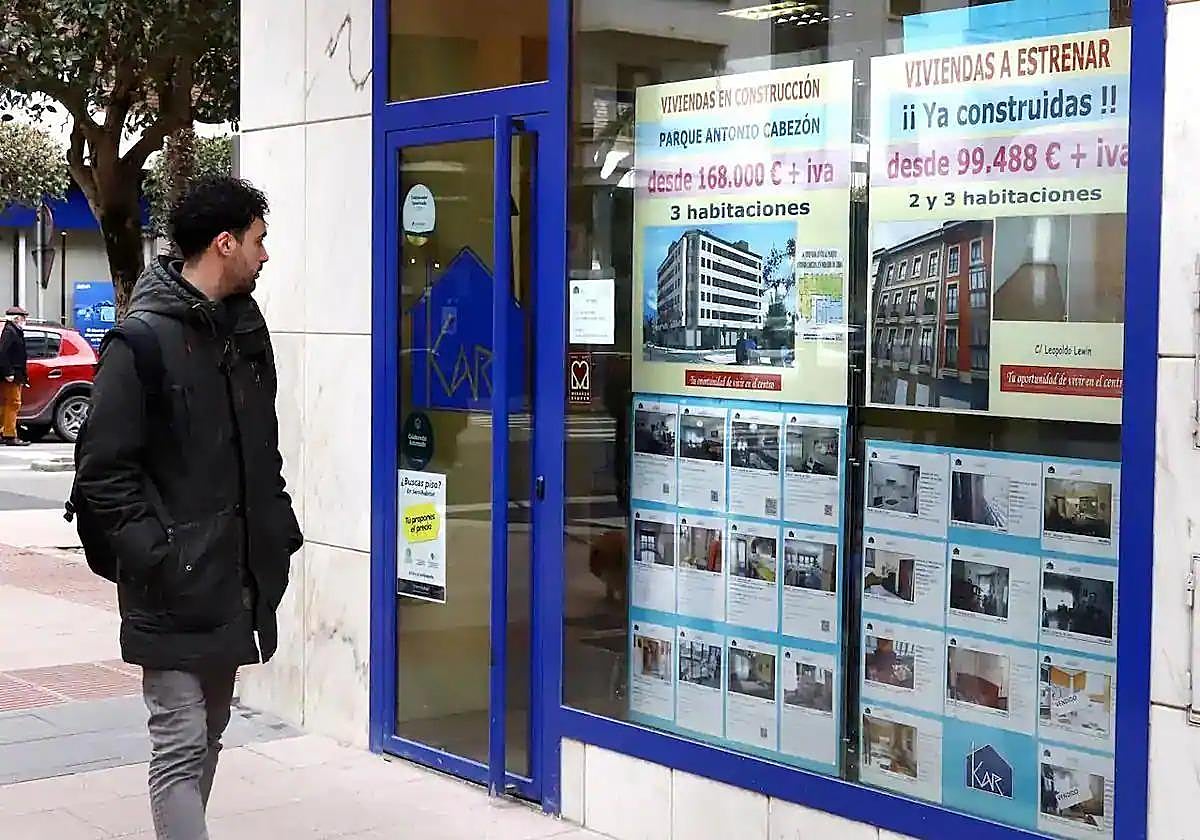The eternal debate: buy or rent - who wins, who loses and how much?
A Tecnocasa study quantifies how much a lease costs and how much interest is paid in the long term, over a period of 25 years
It is an eternal debate. It is even the cause of family arguments. A mother might say to her daughter: "How come you rent, which is a waste of money? Why don't you buy a flat, which you pay more or less the same for every month and in the end you own the house?
There are many responses but common one is to compare Spain to other countries: "In other European countries a lot more people live in rented accommodation, is it that here in Spain we are smarter than anyone else at buying?" Or: "The culture of buying is quite recent in Spain, it comes from Franco's dictatorship; before, here people also rented."
Whatever the reason, what is certain is that the idea that it's always best to buy is still very well established in Spain. If people rent, it is normally because they cannot afford a mortgage, either due to job instability or a lack of previous savings.
In the light of this debate, real estate agency Tecnocasa has carried out a study to conclude which is better - buying or renting - and how much is gained.
To do this, according to Lázaro Cubero, spokesperson for the firm, they compared the long-term economic implications (25 years) of renting or buying a home with a mortgage in a selection of Spanish towns (more than 670).
Interest against the monthly rental payment
For renting, they make an assumption: that every year the monthly payment goes up by 2.3%, because this has been the average annual inflation rate since 2002. For the purchase, the assumption is that the mortgage repayments are considered to be capital preservation, not expenditure (at the end of the life of the loan, the home becomes property, a capital gain), so only the interest paid is counted as expenditure, which is compared with the amount paid as rent in those 25 years.
Let's look at the example given by Tecnocasa: compare a monthly rental income of 900 euros and the same property bought with a price of 250,000 euros, a 25-year mortgage of 200,000 euros and an annual interest rate of 4%. Whoever rented that home during that quarter of a century would have spent practically 360,000 euros. Meanwhile, whoever had bought it would have paid 316,700 euros in mortgage, of which 200,000 would be capital and the remaining 116,700 euros, interest.
In this way, according to the assumption made by Tecnocasa's experts, it would be necessary to compare the total amount of the rent, the 360,000 paid over 25 years, with the interest expense (not the repayments, which is considered capital gain) which would amount to 116,700 euros in the quarter of a century of life of the loan. According to Tecnocasa's calculations, this would mean that the tenant would have incurred a higher expense than the buyer; specifically, the former would have spent almost 242,800 euros more than the latter.
150,000-200,000 more euros
a long-term tenant in Malaga pays more than a buyer of the same property
The Tecnocasa study does not stop at this theoretical exercise. It compares buying and renting in the largest municipalities in Spain, those with more than 150,000 properties. Malaga appears in the middle of the table, along with Las Palmas de Gran Canaria, Valencia, Alicante, Palma de Mallorca and Seville: in these cities, those who rent spend between 150,000 and 200,000 euros more than those who buy over 25 years.
But there are places where the accounts are worse for those who rent: for example, in Madrid or Barcelona, where in that quarter of a century the tenant pays between 200,000 and 250,000 euros more rent than the mortgage holder over the 25-year life of the loan. In Bilbao, meanwhile, those who live in rented accommodation pay up to 300,000 euros more than those who buy the same property.
Average mortgage of 100,000 euros in Malaga city
According to figures from Tecnocasa, the average mortgage taken out in Malaga city in the second half of 2023 is just under 101,000 euros, which represents a drop of nearly 5% compared to a year earlier, when it exceeded 106,000 euros. According to the study, this figure is also much higher in Barcelona and L'Hospitalet de Llobregat, where the average loan volume is around 150,000 euros, while in Madrid and Móstoles it is close to 125,000 euros. Of these other cities, apart from Malaga, the only one where the average mortgage loan has fallen in the last year has been Barcelona (-2.4%).
5% up or down
The average mortgage in Malaga has fallen by 5% in the last year, while house prices have risen by the same proportion. There are two reasons for this: a lot of buyers are paying for the property outright with no need for a mortage; and those who need financing to access housing are buying smaller and cheaper houses.
However, in Malaga, according to Tecnocasa statistics, the average price of housing has continued to rise - by nearly 5%, to be precise.
What is the reason for this disparity between the evolution of house prices and the average mortgage? In Cubero's opinion, this is due to the fact that it is possible that the Malaga credit market is not very representative of the property market, due to the enormous weight of cash purchases. And another factor is also involved: given the sharp rise in house prices in the city in recent years, it is possible that those who need credit to get their foot on the property ladder are opting for smaller and cheaper houses.

